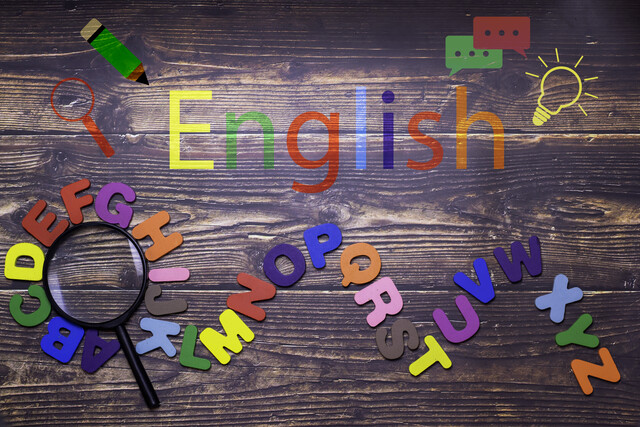Online Class: ESL Grammar Skills Level 2

no certificate
with CEU Certificate*
-
35Lessons
-
39Exams &
Assignments -
1,245Students
have taken this course -
12Hours
average time -
1.2CEUs
Course Description
Course Title: ESL Grammar Skills Level 2
Have you ever found yourself yearning to express the rich tapestry of your thoughts and dreams in English, only to be halted by the daunting, imprecise barriers of language? Imagine possessing the linguistic key to unlock a world where you can communicate your ideas with clarity, confidence, and creativity. Welcome to "ESL Grammar Skills Level 2"—a transformative journey that empowers you to break through language obstacles, enhancing your personal and professional life.
Picture a world where every interaction becomes an opportunity—a chance to connect, influence, and inspire. This course is designed with that goal at its very heart. Harnessing the power of precision and flexibility in English grammar, it guides you through the subtleties and complexities that distinguish fluent speakers and effective communicators. Here, you'll do more than just learn the rules; you'll weave them into the fabric of your daily communication, turning your newfound skills into second nature.
From mastering the dynamic dance between the present progressive and simple tenses to understanding the artful use of modal verbs, each lesson is a stepping stone to greater fluency. Picture yourself using these nuances to convey your ambitions during a job interview, share your travel experiences with newfound friends, or spark illuminating conversations at social gatherings. With these skills, your English won't just sound accurate—it will sound alive.
What sets "ESL Grammar Skills Level 2" apart from traditional grammar courses is its unyielding focus on real-world applicability. Every module immerses you in interactive scenarios, allowing you to navigate through conversations and write with purpose and precision. You will learn to craft compound sentences that elegantly convey complex ideas, just as a seasoned speaker would. By exploring the creative use of phrasal verbs, you'll add color and context to your expressions, just like native speakers naturally do.
This course is more than just a syllabus—it's a dialogue between you and the world. You'll find yourself effortlessly integrating object pronouns and possessive adjectives into your discussions, which subtly enhance your agility in the language. And when nuanced expression is called for, the lessons guide you into exploring the finer contrasts of 'enough' versus 'too,' and making discerning comparisons with 'as...as.' Every lesson builds on the last, ensuring a cohesive, comprehensive understanding that feels as fulfilling as a conversation with an old friend.
The secret to mastering a language lies not only in learning what words mean but in understanding how they allow you to convey your uniqueness. This course is a catalyst for self-expression, guiding you through structured lessons that feel more like guided self-discovery. Whether you're exploring timetables through simple present tense or unraveling the mysterious mechanics of indirect questions, each lesson is designed to spark your curiosity and encourage your inspiration.
What makes "ESL Grammar Skills Level 2" truly remarkable is its commitment to community and connection. As you embark on this journey, you join a vibrant assembly of learners and educators who are as invested in your progress as you are. Our dedicated platform offers spaces to share insights, ask questions, and provide feedback—forming an invaluable support network to accompany you at every stage.
But perhaps the greatest gift this course offers is confidence. Imagine speaking English with grace and assurance, the anxiety and hesitation of mere translation replaced with the robust understanding of grammar at your fingertips. As each module unlocks new dimensions of language, your confidence will soar, opening doors to opportunities you once thought unreachable.
In a world increasingly driven by communication, the value of mastering English grammar is immeasurable. Let "ESL Grammar Skills Level 2" be your guide to linguistic clarity and fluency. Enroll today, and take the transformative step towards a future where your English is not only understood but esteemed. We invite you on this journey of empowerment and discovery—begin today, and see how language can transform your world.
- Completely Online
- Self-Paced
- 6 Months to Complete
- 24/7 Availability
- Start Anytime
- PC & Mac Compatible
- Android & iOS Friendly
- Accredited CEUs

Course Lessons
Lesson 1. Present Progressive vs. Present Simple
 Lesson 1 Video
Lesson 1 Video Review Practice Worksheet: Lesson-1-Downloadable-12525.pdf
Review Practice Worksheet: Lesson-1-Downloadable-12525.pdf Lesson discussions: Reasons for Taking this Course
Lesson discussions: Reasons for Taking this Course Complete Assignment: Course Introduction and Goals
Complete Assignment: Course Introduction and Goals Assessment: Pre-Test
Assessment: Pre-Test Assessment: Lesson 1 Exam
Assessment: Lesson 1 Exam
Lesson 2. Simplifying Sentences with Object Pronouns
 Lesson 2 Video
Lesson 2 Video Review Practice Worksheet: Lesson-2-WordSearch-12526.pdf
Review Practice Worksheet: Lesson-2-WordSearch-12526.pdf Complete: Lesson 2 Activity
Complete: Lesson 2 Activity
Lesson 3. The Possessive Puzzle: Singular and Plural Solutions
 Lesson 3 Video
Lesson 3 Video Review Practice Worksheet: Lesson-3-Downloadable-12527.pdf
Review Practice Worksheet: Lesson-3-Downloadable-12527.pdf Complete: Lesson 3 Activity
Complete: Lesson 3 Activity Assessment: Lesson 3 Exam
Assessment: Lesson 3 Exam
Lesson 4. Understanding Future Intentions with Present Progressive
 Lesson 4 Video
Lesson 4 Video Review Practice Worksheet: Lesson-4-Activity-12528.pdf
Review Practice Worksheet: Lesson-4-Activity-12528.pdf Complete: Lesson 4 Activity
Complete: Lesson 4 Activity Assessment: Lesson 4 Exam
Assessment: Lesson 4 Exam
Lesson 5. Timetables and Schedules: Using Simple Present
 Lesson 5 Video
Lesson 5 Video Review Practice Worksheet: Lesson-5-Downloadable-12529.pdf
Review Practice Worksheet: Lesson-5-Downloadable-12529.pdf Assessment: Lesson 5 Exam
Assessment: Lesson 5 Exam
Lesson 6. Mastering Similarity and Dissimilarity Expressions
 Lesson 6 Video
Lesson 6 Video Review Practice Worksheet: Lesson-6-Activity-12530.pdf
Review Practice Worksheet: Lesson-6-Activity-12530.pdf Assessment: Lesson 6 Exam
Assessment: Lesson 6 Exam
Lesson 7. The Art and Science of Time Estimation: Mastering 'How Long Does It Take?'
 Lesson 7 Video
Lesson 7 Video Review Practice Worksheet: Lesson-7-HomeWork-12531.pdf
Review Practice Worksheet: Lesson-7-HomeWork-12531.pdf Complete: Lesson 7 Activity
Complete: Lesson 7 Activity
Lesson 8. Understanding Nouns: When to Count and When Not To
 Lesson 8 Video
Lesson 8 Video Review Practice Worksheet: Lesson-8-Activity-12532.pdf
Review Practice Worksheet: Lesson-8-Activity-12532.pdf Assessment: Lesson 8 Exam
Assessment: Lesson 8 Exam
Lesson 9. Comparative Language Structures for Effective Communication
 Lesson 9 Video
Lesson 9 Video Review Practice Worksheet: Lesson-9-HomeWork-12533.pdf
Review Practice Worksheet: Lesson-9-HomeWork-12533.pdf Complete: Lesson 9 Activity
Complete: Lesson 9 Activity Assessment: Lesson 9 Exam
Assessment: Lesson 9 Exam
Lesson 10. Understanding Superlatives: A Guide to Expressing Extremes
 Lesson 10 Video
Lesson 10 Video Review Practice Worksheet: Lesson-10-Activity-12534.pdf
Review Practice Worksheet: Lesson-10-Activity-12534.pdf Assessment: Lesson 10 Exam
Assessment: Lesson 10 Exam
Lesson 11. Achieving Balance in Comparisons: A Deep Dive into 'as...as'
 Lesson 11 Video
Lesson 11 Video Review Practice Worksheet: Lesson-11-WordSearch-12535.pdf
Review Practice Worksheet: Lesson-11-WordSearch-12535.pdf Assessment: Lesson 11 Exam
Assessment: Lesson 11 Exam
Lesson 12. Enough vs. Too
 Lesson 12 Video
Lesson 12 Video Review Practice Worksheet: Lesson-12-Downloadable-12536.pdf
Review Practice Worksheet: Lesson-12-Downloadable-12536.pdf Assessment: Lesson 12 Exam
Assessment: Lesson 12 Exam
Lesson 13. Make vs. Do: A Simple Guide
 Lesson 13 Video
Lesson 13 Video Review Practice Worksheet: Lesson-13-Activity-12537.pdf
Review Practice Worksheet: Lesson-13-Activity-12537.pdf Complete: Lesson 13 Activity
Complete: Lesson 13 Activity Assessment: Lesson 13 Exam
Assessment: Lesson 13 Exam
Lesson 14. Mastering the Use of 'Go' in Sentences
 Lesson 14 Video
Lesson 14 Video Review Practice Worksheet: Lesson-14-HomeWork-12538.pdf
Review Practice Worksheet: Lesson-14-HomeWork-12538.pdf Assessment: Lesson 14 Exam
Assessment: Lesson 14 Exam
Lesson 15. The Essential Guide to Building Compound Sentences
 Lesson 15 Video
Lesson 15 Video Review Practice Worksheet: Lesson-15-WordSearch-12539.pdf
Review Practice Worksheet: Lesson-15-WordSearch-12539.pdf Assessment: Lesson 15 Exam
Assessment: Lesson 15 Exam
Lesson 16. To: The Magic Word That Connects Action and Purpose
 Lesson 16 Video
Lesson 16 Video Review Practice Worksheet: Lesson-16-WordSearch-12540.pdf
Review Practice Worksheet: Lesson-16-WordSearch-12540.pdf Assessment: Lesson 16 Exam
Assessment: Lesson 16 Exam
Lesson 17. The Power of If: Unlocking Real Possibilities
 Lesson 17 Video
Lesson 17 Video Review Practice Worksheet: Lesson-17-WorkSheet-12541.pdf
Review Practice Worksheet: Lesson-17-WorkSheet-12541.pdf Assessment: Lesson 17 Exam
Assessment: Lesson 17 Exam
Lesson 18. Understanding Modal Verbs
 Lesson 18 Video
Lesson 18 Video Review Practice Worksheet: Lesson-18-Activity-12542.pdf
Review Practice Worksheet: Lesson-18-Activity-12542.pdf Assessment: Lesson 18 Exam
Assessment: Lesson 18 Exam
Lesson 19. Mastering Permission and Possibility with 'May' and 'Might'
 Lesson 19 Video
Lesson 19 Video Review Practice Worksheet: Lesson-19-HomeWork-12543.pdf
Review Practice Worksheet: Lesson-19-HomeWork-12543.pdf Assessment: Lesson 19 Exam
Assessment: Lesson 19 Exam
Lesson 20. Modal Verbs Explained: 'Can' vs 'Could'
 Lesson 20 Video
Lesson 20 Video Review Practice Worksheet: Lesson-20-WorkSheet-12544.pdf
Review Practice Worksheet: Lesson-20-WorkSheet-12544.pdf
Lesson 21. Understanding the Roles of 'Will' and 'Shall'
 Lesson 21 Video
Lesson 21 Video Review Practice Worksheet: Lesson-21-WorkSheet-12545.pdf
Review Practice Worksheet: Lesson-21-WorkSheet-12545.pdf Assessment: Lesson 21 Exam
Assessment: Lesson 21 Exam
Lesson 22. Exploring 'Would': Requests, Wishes, and Beyond
 Lesson 22 Video
Lesson 22 Video Review Practice Worksheet: Lesson-22-Downloadable-12546.pdf
Review Practice Worksheet: Lesson-22-Downloadable-12546.pdf Assessment: Lesson 22 Exam
Assessment: Lesson 22 Exam
Lesson 23. Using Should and Ought To Effectively
 Lesson 23 Video
Lesson 23 Video Review Practice Worksheet: Lesson-23-WordSearch-12547.pdf
Review Practice Worksheet: Lesson-23-WordSearch-12547.pdf Assessment: Lesson 23 Exam
Assessment: Lesson 23 Exam
Lesson 24. Mustn't vs. Don’t Have To: Understanding the Difference
 Lesson 24 Video
Lesson 24 Video Review Practice Worksheet: Lesson-24-Activity-12548.pdf
Review Practice Worksheet: Lesson-24-Activity-12548.pdf Assessment: Lesson 24 Exam
Assessment: Lesson 24 Exam
Lesson 25. Exploring Modal Verbs: A Comprehensive Guide to Possibility and Obligation
 Lesson 25 Video
Lesson 25 Video Review Practice Worksheet: Lesson-25-WorkSheet-12549.pdf
Review Practice Worksheet: Lesson-25-WorkSheet-12549.pdf Assessment: Lesson 25 Exam
Assessment: Lesson 25 Exam
Lesson 26. 'Used to': Expressing Former Realities
 Lesson 26 Video
Lesson 26 Video Review Practice Worksheet: Lesson-26-WordSearch-12550.pdf
Review Practice Worksheet: Lesson-26-WordSearch-12550.pdf
Lesson 27. Mastering Quantity Descriptors: The Art of Using Some and Any
 Lesson 27 Video
Lesson 27 Video Review Practice Worksheet: Lesson-27-WordSearch-12551.pdf
Review Practice Worksheet: Lesson-27-WordSearch-12551.pdf Assessment: Lesson 27 Exam
Assessment: Lesson 27 Exam
Lesson 28. Mastering the Art of Complex Sentence Construction
 Lesson 28 Video
Lesson 28 Video Review Practice Worksheet: Lesson-28-WordSearch-12552.pdf
Review Practice Worksheet: Lesson-28-WordSearch-12552.pdf Assessment: Lesson 28 Exam
Assessment: Lesson 28 Exam
Lesson 29. The Essentials of Telling Time
 Lesson 29 Video
Lesson 29 Video Review Practice Worksheet: Lesson-29-Activity-12553.pdf
Review Practice Worksheet: Lesson-29-Activity-12553.pdf Assessment: Lesson 29 Exam
Assessment: Lesson 29 Exam
Lesson 30. Progressive Practice
 Lesson 30 Video
Lesson 30 Video Review Practice Worksheet: Lesson-30-WorkSheet-12554.pdf
Review Practice Worksheet: Lesson-30-WorkSheet-12554.pdf Assessment: Lesson 30 Exam
Assessment: Lesson 30 Exam
Lesson 31. Navigating Future Plans: The 'Be Going To' Structure
 Lesson 31 Video
Lesson 31 Video Review Practice Worksheet: Lesson-31-HomeWork-12555.pdf
Review Practice Worksheet: Lesson-31-HomeWork-12555.pdf Assessment: Lesson 31 Exam
Assessment: Lesson 31 Exam
Lesson 32. Delve into the World of English Phrasal Verbs
 Lesson 32 Video
Lesson 32 Video Review Practice Worksheet: Lesson-32-Downloadable-12556.pdf
Review Practice Worksheet: Lesson-32-Downloadable-12556.pdf Assessment: Lesson 32 Exam
Assessment: Lesson 32 Exam
Lesson 33. Understanding Possessive Pronouns: A Comprehensive Guide
 Lesson 33 Video
Lesson 33 Video Review Practice Worksheet: Lesson-33-WorkSheet-12557.pdf
Review Practice Worksheet: Lesson-33-WorkSheet-12557.pdf Assessment: Lesson 33 Exam
Assessment: Lesson 33 Exam
Lesson 34. Indirect Questions
 Lesson 34 Video
Lesson 34 Video Review Practice Worksheet: Lesson-34-Activity-12558.pdf
Review Practice Worksheet: Lesson-34-Activity-12558.pdf Assessment: Lesson 34 Exam
Assessment: Lesson 34 Exam
Lesson 35. Embrace the Final Challenge
 Lesson 35 Video
Lesson 35 Video Review Practice Worksheet: Lesson-35-HomeWork-12559.pdf
Review Practice Worksheet: Lesson-35-HomeWork-12559.pdf Lesson discussions: How would you rate this course?; Course Comments; Program Evaluation Follow-up Survey (End of Course); Reasons for Taking this Course
Lesson discussions: How would you rate this course?; Course Comments; Program Evaluation Follow-up Survey (End of Course); Reasons for Taking this Course Assessment: Final Exam
Assessment: Final Exam
Learning Outcomes
- Define the present progressive tense and differentiate it from the present simple tense by providing examples.
- Formulate affirmative, negative, and interrogative sentences using the present progressive tense with correct subject-verb agreement.
- Identify and use the correct object pronoun to replace a noun in a sentence following a verb.
- Rearrange words in scrambled sentences to correctly place object pronouns in proper English syntax.
- Identify and apply the correct use of possessive apostrophe 's for singular nouns to demonstrate ownership in sentences.
- Recognize and use plural possessives by placing an apostrophe after the 's' to indicate ownership by multiple entities.
- Demonstrate the ability to distinguish between the present and future use of present progressive tense based on contextual cues.
- Identify and construct sentences using the present progressive tense to indicate future events with appropriate time markers.
- Demonstrate the correct use of the present simple tense to describe future scheduled events by completing sentences with proper verb forms.
- Identify schedules and timetables using the present simple tense for events in the future.
- Identify and apply the appropriate use of 'either' to express agreement or similarity in negative sentences.
- Recognize and demonstrate the correct use of 'too' to express agreement or similarity in affirmative sentences.
- Identify and articulate the duration of various tasks and activities using the phrase 'How long does it take...?' in both written and spoken formats.
- Demonstrate mastery of lesson content at levels of 70% or higher.
Additional Course Information

- Document Your Lifelong Learning Achievements
- Earn an Official Certificate Documenting Course Hours and CEUs
- Verify Your Certificate with a Unique Serial Number Online
- View and Share Your Certificate Online or Download/Print as PDF
- Display Your Certificate on Your Resume and Promote Your Achievements Using Social Media

Choose Your Subscription Plan
No Certificate / No CEUs
This course only
| Includes certificate | X |
| Includes CEUs | X |
| Self-paced |

|
| Instructor support |

|
| Time to complete | 6 months |
| No. of courses | 1 course |
Certificate & CEUs
This course only
| Includes certificate |

|
| Includes CEUs |

|
| Self-paced |

|
| Instructor support |

|
| Time to complete | 6 months |
| No. of courses | 1 course |
Certificates & CEUs
Includes all 600+ courses
| Includes certificate |

|
| Includes CEUs |

|
| Self-paced |

|
| Instructor support |

|
| Time to complete | 12 Months |
| No. of courses | 600+ |
Certificates & CEUs
Includes all 600+ courses
| Includes certificate |

|
| Includes CEUs |

|
| Self-paced |

|
| Instructor support |

|
| Time to complete | 24 Months |
| No. of courses | 600+ |
Student Testimonials
- "Some of the stuff was new to me and I learned something new in English that we did not do back in my school days." -- Carolyn W.
- "This course was really helpful. I can already see my improvement in writing and speaking. After finishing level 2 I am more comfortable to start a conversation without being nervous." -- Sumeja K.
- "It was easy to understand, yet challenging. Great work." -- Brian M.
- "Very informative and I learned a lot." -- Tuokpe O.
- "Thank you for making my learning easy." -- Hondura Y.
- "Grammar was most important to me. English is a second language I speak. It is important to me to understand how to speak correctly and that is the most helpful thing I got from this course." -- Halima M.
Related Courses
-
 72 hours
7.2 CEUs
Writing Help Course Bundle
+ More Info
72 hours
7.2 CEUs
Writing Help Course Bundle
+ More Info
-
 52 hours
5.2 CEUs
ESL Grammar Skills: Level 1-5 Course Bundle
+ More Info
52 hours
5.2 CEUs
ESL Grammar Skills: Level 1-5 Course Bundle
+ More Info
-
 11 hours
1.1 CEUs
ESL Basic Writing Skills
+ More Info
11 hours
1.1 CEUs
ESL Basic Writing Skills
+ More Info
-
 7 hours
0.7 CEUs
Basic English Speaking Skills
+ More Info
7 hours
0.7 CEUs
Basic English Speaking Skills
+ More Info
-
 6 hours
0.6 CEUs
ESL Basic Grammar
+ More Info
6 hours
0.6 CEUs
ESL Basic Grammar
+ More Info
-
 9 hours
0.9 CEUs
ESL Grammar Skills Level 5
+ More Info
9 hours
0.9 CEUs
ESL Grammar Skills Level 5
+ More Info
-
 8 hours
0.8 CEUs
Teaching Grammar to ESL Students
+ More Info
8 hours
0.8 CEUs
Teaching Grammar to ESL Students
+ More Info
-
 29 hours
2.9 CEUs
Writing Basics 101: Spelling, Grammar, Punctuation, Writing Structures
+ More Info
29 hours
2.9 CEUs
Writing Basics 101: Spelling, Grammar, Punctuation, Writing Structures
+ More Info





